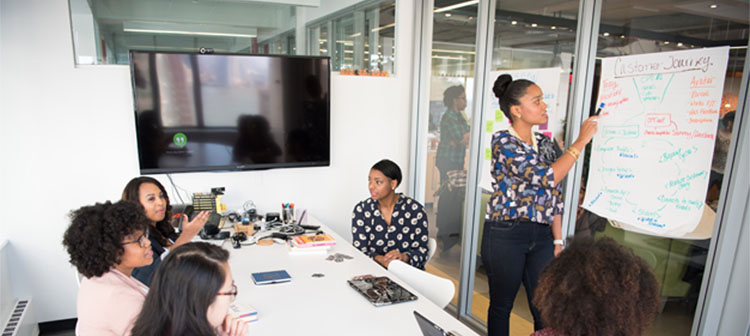Important youth worker courses that every youth worker should take
1. Youth Development Management Skills
This Program covers all the management tasks and roles that youth development workers may have to perform, and it is one of the most important youth worker courses. The Program starts by examining the concepts of management and the theories that underlie management. It then focuses on showing you how you can manage both the resources and the staff you are responsible for in order to complete the tasks you need to manage, and it also guides you through the covered in detail, including managing time, managing yourself, managing resources, staff development, budgeting, and monitoring expenditure, and managing communication and information technology. management of organizational development and change. These are the key management processes.
This course helps youth workers to:
- Demonstrate commitment and awareness to the management tasks necessary for the delivery of youth development programs.
- Discuss and identify the main theories, approaches, and styles that influence contemporary management, especially in the not-for-profit sector.
- To ensure your management style is appropriate, you should link management theories and practices to youth development principles and work.
- Outline key management processes and areas, including organizational change, staff training, budget control monitoring, budgetary control, project management, and critical path analysis, as well as management of information and communications technology.
2. Youth Program Planning
Many youth development professionals organize their work around specific projects. These projects may be small ones that you or other stakeholders create to address specific problems. They may also be part of larger projects funded by major funding agencies. In either case, it is expected that project design and development will use certain techniques to ensure quality. This program aims to show you the best practices in project management and design over the past few decades.
This will provide a basic overview of the project work. This guide is designed to assist you in developing the skills and knowledge necessary to plan, implement, monitor, evaluate, and evaluate projects for your youth development program.
This course helps youth workers to:
- Identify the activities involved in planning, monitoring, and evaluating youth projects.
- A logical framework is essential for planning projects.
- Demonstrate an understanding of the Total Quality Program stands.
- Plan your project risk management.
3. Youth Conflict Resolution
Youth conflict resolution strategies and skills is one of the essential youth worker courses that every youth worker need to take. Conflict can always arise when two or more people come into contact, whether as individuals or in a group. The potential for conflict exists when young people interact in a workplace setting. You need to be aware of this potential to recognize a conflict situation and take appropriate action to manage it. Many young people work with workers who are faced with difficult situations. They may need to help resolve conflicts and problems. These could be problems within the youth group or between young people and adults, or conflict between you and the young people with whom you work. This Program is designed to help you understand conflict and its effects on people in different contexts. We will also examine inter-group behavior and its possible impact on members of groups.
This course helps youth workers to:
- Identify conflict examples in your area, explain their origins, and describe the events that led to them.
- Recognize the differences in conflict resolution approaches and their strengths and weaknesses.
- Use the knowledge gained by studying conflict situations to help you understand the types of conflict that youth development works with.
- Recognize the existence and potential for conflict in various youth and development settings.
- Use mediation and negotiation skills to bring together individuals or groups that are in conflict.
- When the agreement is not possible, consider strategies for resolving conflict
4. Youth and Sustainable Development
This Program offers strategies for youth sustainable development projects. This Program also examines the need for youth to be more aware of sustainable development. It focuses on the importance of balancing development and protection. This program focuses on the important role young people can play in sustainable development. Rio Declaration on Environment and Development 1992 states that Principle 21 is “Principle 21”: “Principle 21”: The creativity, ideals, and courage shown by the youth around the world must be mobilized to create a global partnership to ensure sustainable development and a better future.
This course helps youth workers to:
- Learn more about the environmental and sustainable development issues that impact youth all over the globe.
- Give you the skills to make a positive difference in the current state of the environment.
- Assist a youth group in designing and implementing an environmental/sustainable development-related project.
- You can lead or support groups that promote sustainable development.
- Create a project that reflects the principles of sustainable development.
- Assess projects based on their contribution to sustainable growth.
5. Youth Policy Development
The program will equip you with the knowledge and skills to analyze, influence, and investigate the policies that affect welfare services. This includes those that directly impact the quality of young people’s lives. This program will primarily focus on the nature and extent of youth policy, the common themes that underpin national policies for youth, and the tensions within them. It will also examine the relationship between youth policies, and the wider policy environment. This Program will examine the factors that determine the success or failure of youth policies, and how they are evaluated.
This course helps youth workers to:
- Please describe the history, origins, and development of youth policy in at least two countries within your region.
- Describe the key themes that are the foundation of the development, implementation, and maintenance of youth policies.
- Demonstrate an awareness of the effects of youth policies on youth development.
- You can use performance indicators to evaluate the success of these policies.
- Through youth policy development, contribute to the strategic development and growth of youth development agencies.
- To achieve the key goals of youth policy at the local level, establish and/or participate in partnerships.
- Influence policy-making in a manner that is relevant to your position.

